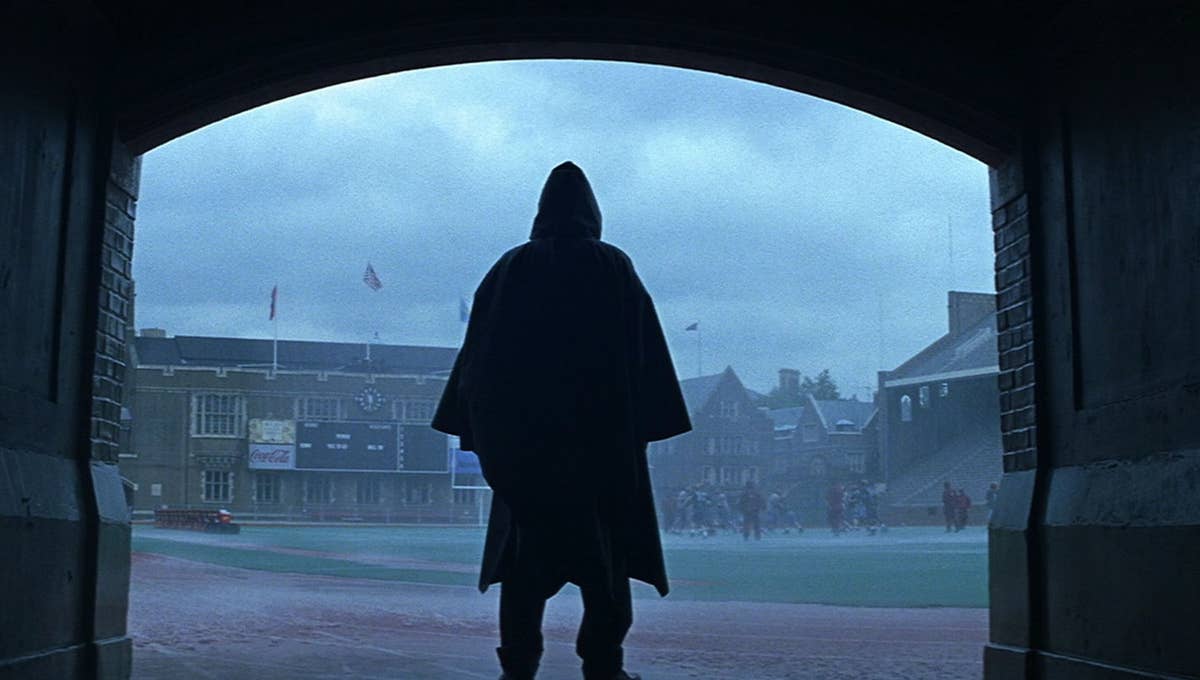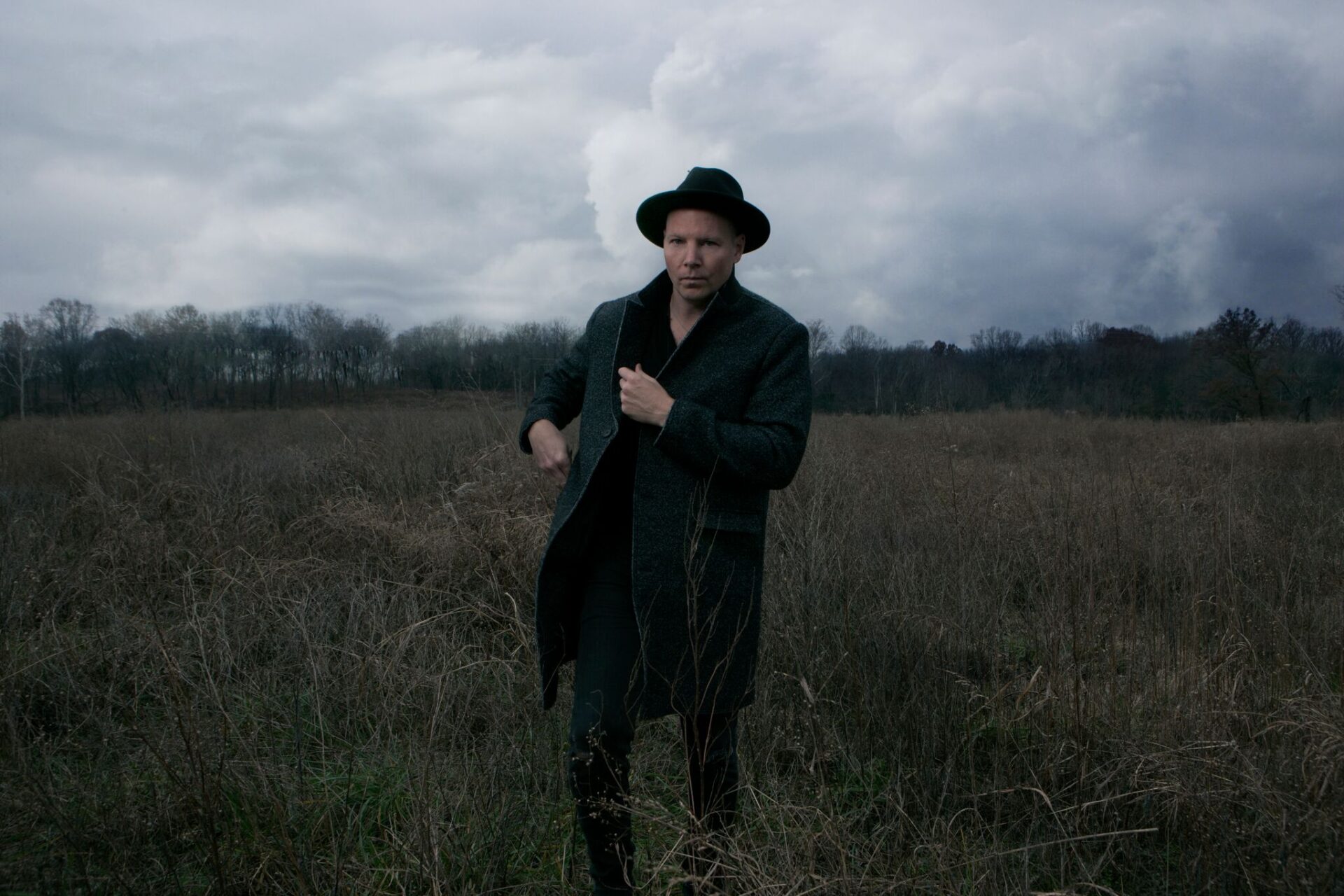Do you remember the first time you read a comic book? During our time of adolescence, nothing is out of the realm of possibility. You can have super strength, x-ray vision, and leap tall buildings with a single bound. As you get older, practicality (and reality) sets in and you realize humans are a little more limited. We pave the line between good and evil with everyday actions. Think of a firefighter who runs into a burning building to save someone in need or a person who robs a bank – it’s all about purpose and intention.
With M. Night Shyamalan‘s second film, Unbreakable, the director set out to make us believe that heroes and villains exist within our everyday construct of life. They may not need the bombast of a leather cowl or to yield a mighty weapon like Mjölnir, but perhaps everyday people searching for their place and finding it. This theme is prominent, especially when you consider Shyamalan’s Unbreakable trilogy of films in totality.
Unbreakable fits the typical three-act structure of a film within a real-life context. It shows our two main characters to us at opposite ends of the spectrum, as the movie often alludes to. When we meet David Dunn (Bruce Willis), he’s on a train at one of his lowest points trying to strike up a conversation with a lady despite him being married. The origin points of Elijah Price (Samuel L. Jackson) are initially shown through flashbacks – once at birth, and again when he was a kid. It’s an interesting way that Shyamalan depicts what points we first view these characters. Elijah (dubbed ‘Mr. Glass’ as a kid because of his brittle bone disease) is displayed as a sympathetic character at first. Downtrodden by his condition, he receives a pep talk from his mother, Mrs. Price (Charlayne Woodard) and she gives him his first comic. Thus, that fueled his borderline obsession with the hero/villain setup and the search for meaning in his life.
David is aloof, having problems with his marriage, and particularly distant from his son. He’s all but separated from the extraordinary circumstances of his youth. It’s not until the train crash tragedy where he is the lone survivor with no injuries that David comes back to who he is truly meant to be. One of the most prevalent inverse relationships in comic lore is Batman and The Joker. One is shaped by tragedy, beholden to be Gotham’s protector in the shadows, and the other is a maniacal psychopath who is determined to be a thorn in his side. Strangely, both characters need each other. This is very much like the relationship between David and Elijah. As Elijah learns more about David’s past, he becomes insanely determined to draw this out of David.
What separates Unbreakable is the family dynamic. Not only does David have these outside factors pulling on him from the outside, but it also comes from his own son Joseph (Spencer Treat Clark). There’s the parent/child relationship where when we are younger, some of us look to our parents as these superhero-type figures. Joseph thinks the world of his father – there’s no feat that he can’t complete in his eyes. The weight lifting scene is a beautiful key to this realization. It’s the unmitigated belief from a child that transports us back to a time when anything is possible.
No matter how hard David resists, Joseph has none of it – even to the effect where he pulls a gun on him. The newspaper scene between these two characters is one of the most powerful in the movie. David whispering “you were right” to Joseph and having that secret between them – it becomes one of the stronger concurrent storylines when you see how they developed in 2019’s Glass.
Starting over also comes to pass in David’s relationship with his wife, Audrey (Robin Wright Penn). As they give their marriage a second chance, Shyamalan chooses to show the splinter in their relationship through a date conversation before showing the car crash flashback. Audrey reminds David that she would have never forced him to diminish his physical gifts and that it was his choice to. The movie affirms a possible long-standing resentment as he completed the feat of strength to save her life and fake an injury to end his promising football career. As David makes the deliberate decision to indulge the themes that Elijah brings up to him throughout the movie, his life gets better and relationships become well-rounded.
Shyamalan brings a lot of conventional comic book rules into this film. David is blessed with super strength and sensory touch that displays the transgressions of random strangers. He is a security guard at a college football stadium as a universal reminder to remember who he is. Every hero has a weakness and David’s is water. Of course, Elijah’s physical stature is fragile, but he’s endowed with intellect. Each character has a color (David with green and Elijah with purple) that grows more dominant as the movie goes on. It’s almost as if they have to earn it. When David puts his own brand of vigilantism into action, he struggles and almost dies at first. All the ingredients of his demise come together to make him rise above them. All movie, he was combatting his inner and outer emotional turmoil – in the third act; it was time for the physical.
The movie itself is beautifully arranged like a comic book through the cinematography of Eduardo Serra. He frames some conversations in a panel-style where you can visualize the speech bubbles. As David and Elijah progress through the movie, they are framed as larger-than-life characters. When David uses his security poncho on his first night out, the darkness conceals his face and gives him a powerful presence. James Newton Howard’s score doesn’t overpower scenes like a conventional superhero movie might. Unbreakable‘s music is more subtle and serene.
When the trademark Shyamalan-twist comes, it is first hinted at through a conversation between David and Mrs. Glass in the gallery. She tells us of the two villain types. Throughout Unbreakable, we’ve seen different two different parental relationships. When Mrs. Price gives Elijah the comic, at first it seems she wasn’t aware of where this would lead for him. Even when she’s stating the comic book themes, it just seemed like it was regurgitating what Elijah would tell her. When you look at the role she plays in Glass, it makes the ending of Unbreakable that much more clear. She doesn’t apologize for him, but from a mother’s viewpoint, especially having a child with a condition, she looks at his actions as a necessary evil.
Elijah did terrible acts and killed many people on his road to self-realization. However, if he didn’t do that, the world wouldn’t have gotten the best version of David. Therein lies the conundrum – you have to have a villain’s actions impact the world to get the hero. While the plot threads of Unbreakable may seem to be far fetched within our realm, they aren’t impossible. M. Night Shyamalan cultivated a superhero film for the everyman. Maybe men can’t fly over skyscrapers, but in our existence, we can always be a force for good or evil.













